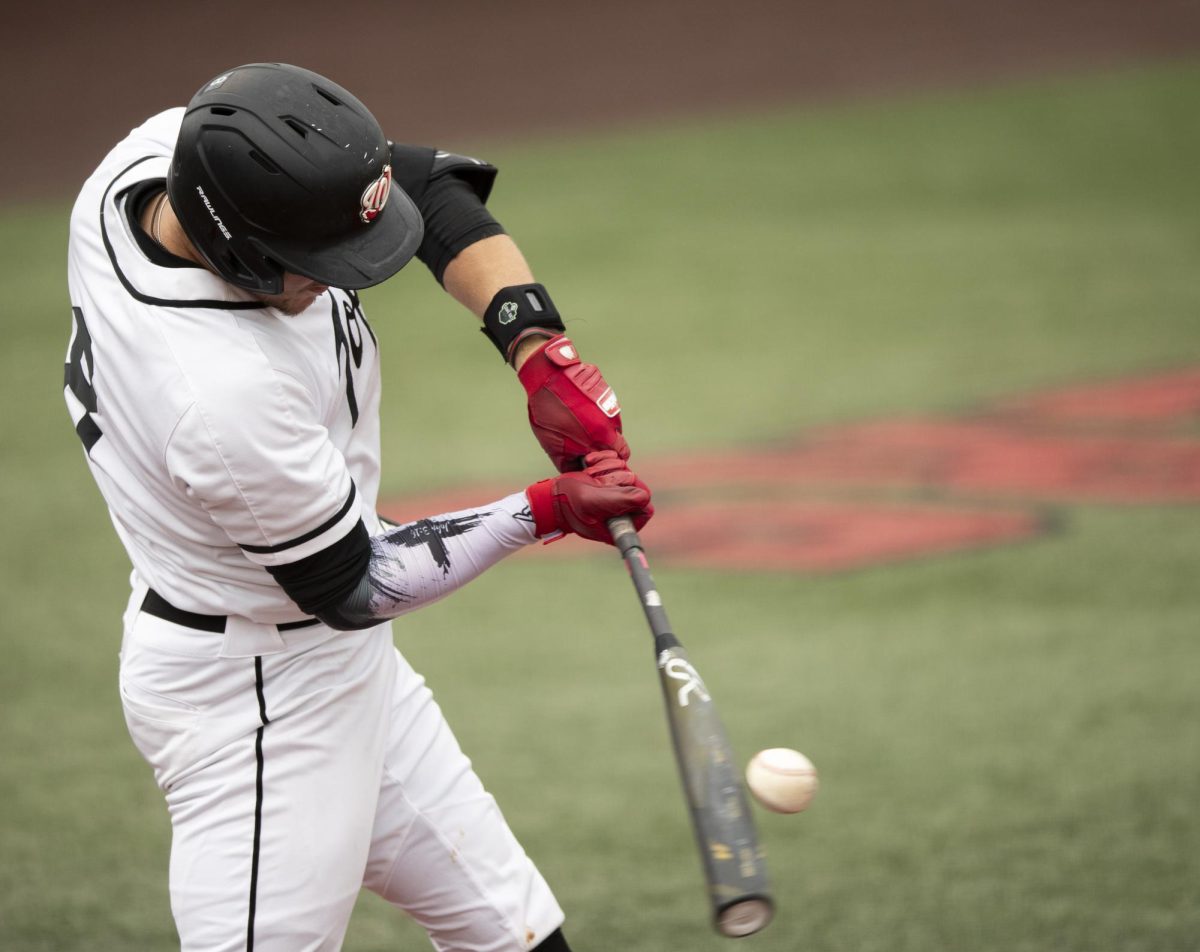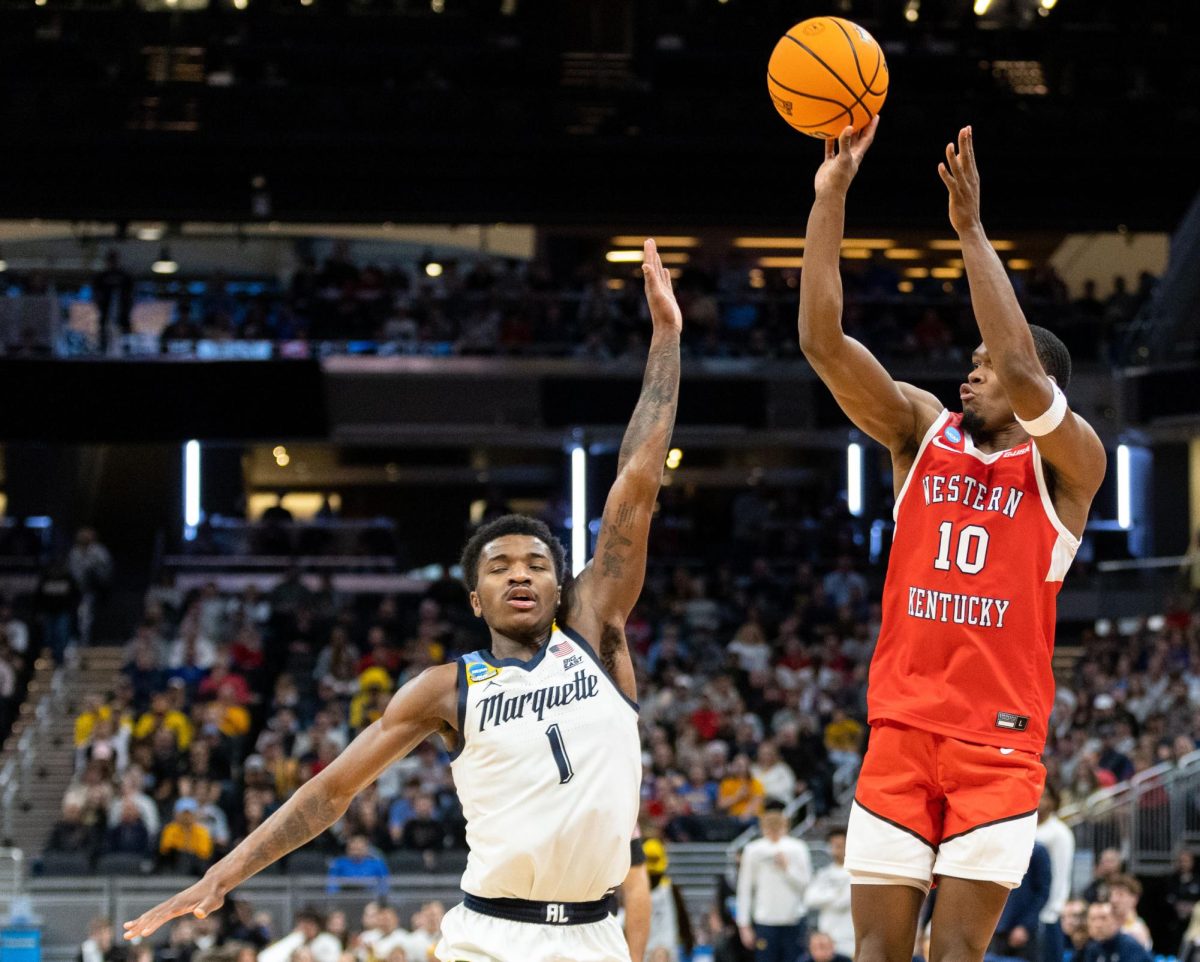Occupy movement gaining attention at WKU
October 22, 2011
WKU was occupied, not once, but twice, on Thursday.
An open forum concerning what the Occupy Wall Street movement is and the second meeting for Occupy WKU both took place.
Noelle Johnson, a student worker at the Institute for Citizenship and Social Responsibility, called the meeting about what the Occupy movement is a “spur of the moment event” meant to educate people about the demands from the Occupy Wall Street protests.
WKU faculty and staff and even members from the community attended the event. Many said they were “curious” to find out what the movement meant.
One community member at the open forum, Dan Givens, said he has been anti-war since 1969 when he protested the Vietnam War. He said he went to Washington D.C. this month to protest the wars in Afghanistan and Iraq as well as class inequalities.
“Rich people (on Wall Street) are staying in hotels that are like palaces and you can see homeless people living in garbage,” he said.
Givens also linked the economic situation with the conflicts in the Middle East. The money spent on the wars should be spent in the United States instead of weapons that are “only good for killing people,” he said.
At the second Occupy WKU meeting, the group had nearly doubled in size. There were discussions about linking the group with the Occupy Bowling Green group and even holding a candle light vigil for the middle class next Thursday.
Student Emily Gillespie has participated in the Occupy Lexington protests. She echoed many Occupy protesters, and said she is going to have about $100,000 in student loans.
Gillespie said that these types of problems are “systemic” issues.
“They are trying to say that only 1 percent of us have extreme wealth and the rest of us are kind of suffering,” Gillespie said.
Environmental concerns have also been connected to the movement, particularly concerning global warming and the “blocking” of alternative energy by oil companies.
Senior Josh Brown, who also went to the D.C. protests said the movement has been structured to make sure everyone has their voices heard through General Assemblies. Some of these meetings take three to four hours, Brown said, but this is to ensure that everyone’s opinion is accounted for.
Brown contrasted this to the current political environment.
“The extremely wealthy have the power, and we don’t and that’s not anything like a democracy,” he said.
Some in the group voiced worries that this type of consensus was not sustainable. One attendee said that all of the different goals of the movement will cause “fractioning.”
Another agreed and said he does not think the protests can “get anything done,” and that “no revolutions have succeeded peacefully.”
At the Occupy WKU meeting, though, one of the founders of the group sophomore Peyton Crenshaw felt the movement was starting to “scare” corporations that there will be change.
“They are starting to take us seriously,” she said.











![Students cheer for Senator at Large Jaden Marshall after being announced as the Intercultural Student Engagement Center Senator for the 24th Senate on Wednesday, April 17 in the Senate Chamber in DSU. Ive done everything in my power, Ive said it 100 times, to be for the students, Marshall said. So, not only to win, but to hear that reaction for me by the other students is just something that shows people actually care about me [and] really support me.](https://wkuherald.com/wp-content/uploads/2024/04/jadenmarshall-1200x844.jpg)




![Students cheer for Senator at Large Jaden Marshall after being announced as the Intercultural Student Engagement Center Senator for the 24th Senate on Wednesday, April 17 in the Senate Chamber in DSU. Ive done everything in my power, Ive said it 100 times, to be for the students, Marshall said. So, not only to win, but to hear that reaction for me by the other students is just something that shows people actually care about me [and] really support me.](https://wkuherald.com/wp-content/uploads/2024/04/jadenmarshall-600x422.jpg)








